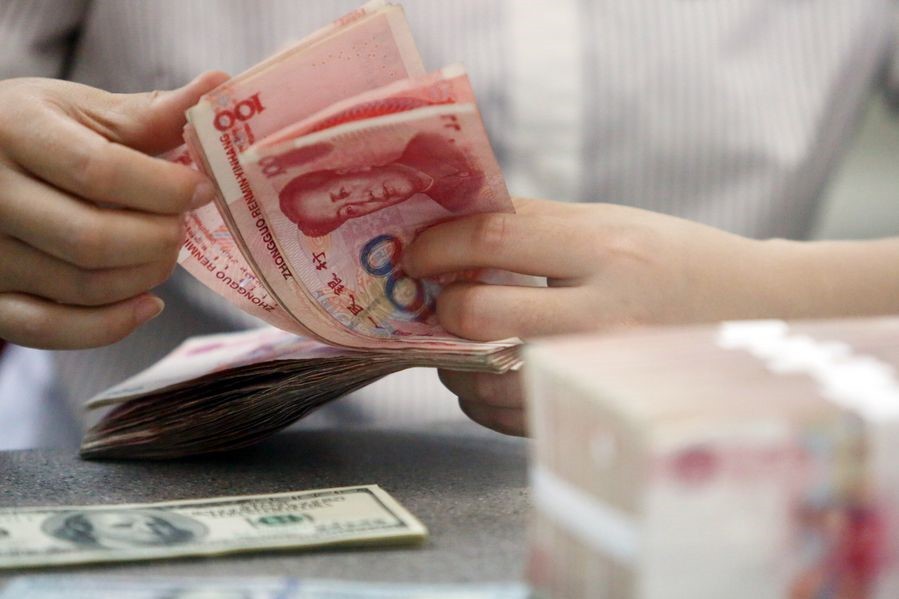
A worker counts Chinese currency renminbi at a bank in Linyi, East China's Shandong province. (Photo:Xinhua)
Global investors expect a stronger Chinese yuan to stabilize the world's largest foreign exchange reserves, fueled by optimism over the country's economic recovery and higher investment returns of domestic financial assets that will attract capital inflows-despite global financial vulnerabilities affected by the coronavirus pandemic.
China's foreign exchange reserves reached $3.179 trillion by the end of November, the highest level since August 2016, when it reached $3.185 trillion. They ended a decline of two consecutive months, which were $3.128 trillion in October and $3.143 trillion in September, officials of the State Administration of Foreign Exchange, the nation's foreign exchange regulator, said on Monday.
On the same day, the central bank posted the yuan's central parity rate, or daily trading reference, at 6.536 per US dollar, the strongest since July 2018. At the same time, the offshore yuan traded at around 6.518 per dollar. It had hit its strongest point in nearly two and a half years on Dec 5-6.502 per dollar. The currency is heading for its longest run of monthly gains in six years.
Wang Chunying, the SAFE's deputy director and spokeswoman, said major reasons for the rise of foreign reserves include changes in exchange rates and asset prices.
The drop of the US dollar index and appreciations of other currencies were mainly influenced by the COVID-19 pandemic, the development of vaccines and expectations regarding major economies' monetary and fiscal policies, which also boosted prices of stocks and bonds in major countries, said Wang.
"We expect a stable foreign exchange market in the future, with two-way fluctuations" of the exchange rate, she added.
The optimistic outlook for the world's second-largest economy has strengthened global investors' confidence in the renminbi, which is likely to attract capital inflows continually as the US dollar weakens, economists said.
China is sustaining its economic recovery momentum, and the pandemic's impact on growth is weakening. That will support the GDP growth figure for the whole year and stabilize foreign exchange reserves, said Wen Bin, chief analyst at China Minsheng Banking Corp.
Wen expected the flexibility of the RMB exchange rate to further improve, and for its exchange rate against the US dollar to fluctuate around a reasonable and balanced equilibrium.
Chief financial officers from the world's largest multinational corporations told CNBC in a survey in the fourth quarter that they have a more positive outlook on the Chinese economy than they do for the economy of the United States. They also expect China's economic growth out of the pandemic to lead the world's recovery.
The CNBC Global CFO Council Survey gave an average outlook of "modestly improving" for China's GDP, upgrading the world's second-largest economy from its third quarter rating of "stable".
Some economists expected the RMB to be "the best pick among Asian currencies" in the first half of next year, thanks to China's sustainable and relatively faster economic recovery.
Shan Hui, chief China economist at Goldman Sachs, predicted that by the end of 2021, the RMB may strengthen to 6.3 yuan per dollar, as currency internationalization continues and foreign investors continue to increase holdings of yuan-denominated bonds and equities in the domestic market.
The RMB may be more likely to test the level of 6 per dollar, in the scenario that Chinese tourists refrain from global travel until worldwide vaccine adoption, and before the market starts lifting expectations for the normalization of the monetary policy issued by the US Federal Reserve, according to Stephen Chiu, Asia FX and rates strategist of Bloomberg Intelligence.


